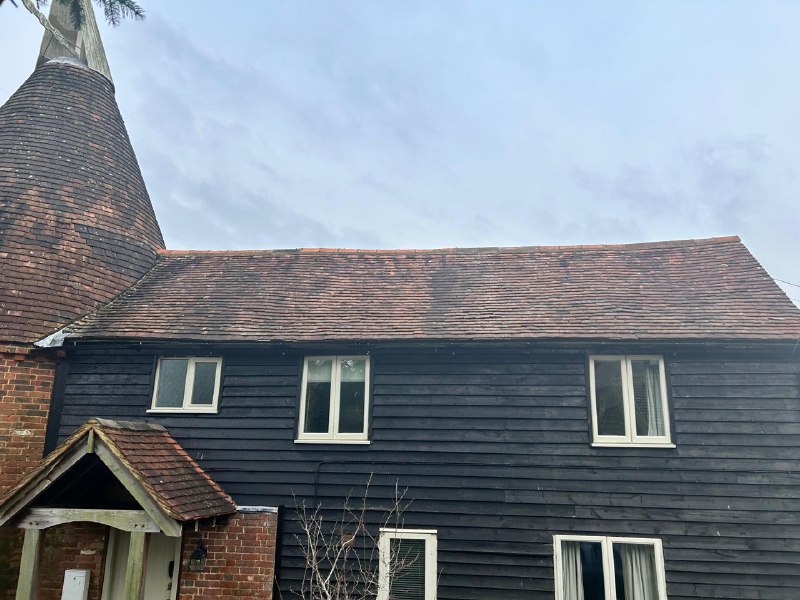The Role of Regular Roof Inspections in Detecting and Repairing Slipped Tiles
Introduction: A well-maintained roof protects your home from the elements and ensures long-term structural integrity. At FP Roofing Sandy, regular roof inspections are vital for identifying and addressing issues such as slipped tiles before they become more significant. In this blog post, we’ll explore the importance of regular roof inspections, how they can help detect and repair slipped tiles, and what you can do to keep your roof in top condition.
Why Regular Roof Inspections Matter
Regular roof inspections offer numerous benefits that go beyond simply identifying visible damage. Here’s why they are essential:
- Early Detection of Problems
- Preventative Maintenance: Regular inspections help catch issues like slipped tiles, leaks, or damaged flashing before they escalate. Early detection can save you from costly repairs and extend the lifespan of your roof.
- Unseen Damage: Many roofing problems are not immediately visible from the ground. A professional inspection can identify underlying issues that may only be apparent with a thorough examination.
- Improved Safety
- Avoid Accidents: Climbing on a roof without proper knowledge or equipment can be dangerous. Professional roofers are trained to inspect roofs safely and effectively, reducing the risk of accidents.
- Structural Integrity: Regular inspections ensure that your roof remains structurally sound, which is crucial for your home’s and its occupants’ safety.
- Enhanced Property Value
- Maintain Aesthetic Appeal: A well-maintained roof enhances the overall appearance of your property, contributing to its curb appeal and market value.
- Avoid Devaluation: Neglecting roof maintenance can lead to more severe damage, affecting property value and potentially hindering future sale prospects.
How Regular Roof Inspections Help with Slipped Tiles
Slipped tiles are a common issue that can arise from various factors, including weather conditions, physical damage, or poor installation. Here’s how regular roof inspections play a critical role in managing this problem:
- Identifying Slipped Tiles Early
- Visual Inspection: During an inspection, roofers will look for tiles that have slipped out of alignment. This can be particularly important for detecting issues in the early stages before they lead to leaks or further damage.
- Assessment of Surrounding Areas: Inspectors will also examine the areas around slipped tiles for signs of damage to the underlying structure or potential causes of the displacement.
- Preventing Further Damage
- Immediate Repairs: Detecting slipped tiles early allows for prompt repair, preventing water from infiltrating your home and causing additional damage to the roof structure or interior.
- Addressing Underlying Issues: Regular inspections can help identify underlying issues, such as damaged underlayment or inadequate tile adhesion, contributing to tile slippage.
- Ensuring Proper Repairs
- Professional Evaluation: Professional roofers have the expertise to assess the condition of slipped tiles and determine the best course of action for repair.
- Quality Repairs: Ensuring that repairs are carried out correctly and with high-quality materials helps maintain the roof’s integrity and prevents future problems.
What to Expect During a Roof Inspection
When you schedule a roof inspection with FP Roofing Sandy, here’s what you can typically expect:
- Thorough Examination
- Visual Inspection: Roofers will conduct a detailed roof inspection, checking for signs of damage, wear, and tile displacement.
- Structural Assessment: Inspectors will assess the condition of the roof structure, including the underlayment, flashing, and gutters.
- Identification of Issues
- Slipped Tiles: Any slipped or damaged tiles will be noted, along with recommendations for repair.
- Additional Concerns: Inspectors will also identify other potential issues, such as broken tiles, damaged flashing, or signs of leaks.
- Reporting and Recommendations
- Inspection Report: You will receive a detailed report outlining the inspection’s findings, including any identified issues and recommended repairs.
- Repair Options: The report will include options for addressing problems, estimated costs and repair timelines.
How to Keep Your Roof in Top Condition
In addition to scheduling regular inspections, here are some tips for maintaining your roof and preventing issues like slipped tiles:
- Keep Gutters Clean
- Regular Cleaning: Ensure gutters and downpipes are debris-free to prevent water buildup and reduce the risk of roof damage.
- Install Gutter Guards: Consider installing gutter guards to minimise the accumulation of leaves and other debris.
- Trim Overhanging Branches
- Prevent Physical Damage: Regularly trim trees and shrubs that could damage your roof or contribute to tile slippage.
- Address Small Issues Promptly
- Timely Repairs: Address minor issues as soon as they arise to prevent them from developing into larger problems.
Conclusion: Regular roof inspections are essential for maintaining the health of your roof and ensuring that issues like slipped tiles are identified and repaired promptly. At FP Roofing Sandy, we are committed to providing thorough and professional roof inspections to help you keep your home safe and secure.
Call us on: 01767 667 088
Click here to find out more about FP Roofing Sandy
Click here to complete our contact form and see how we can help you with your roofing needs.

